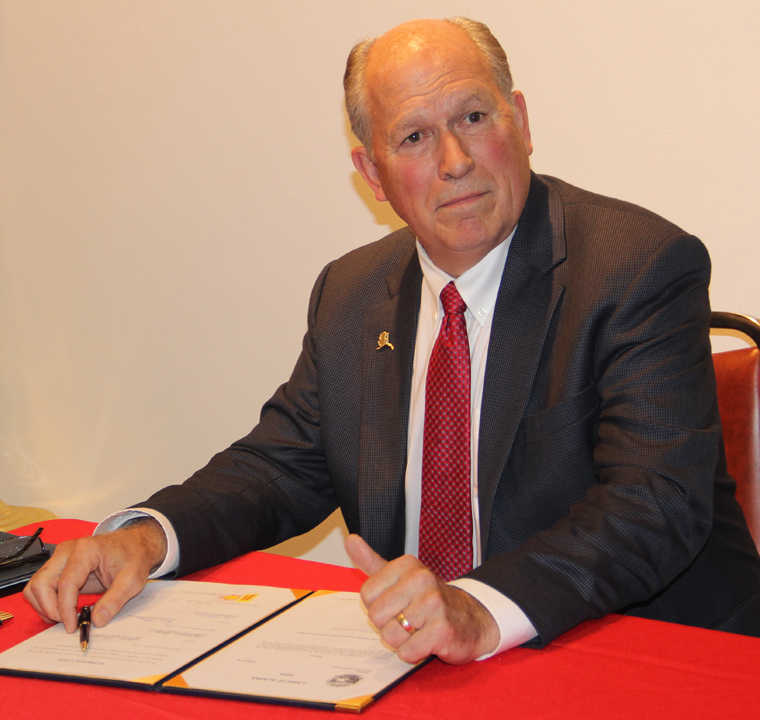When Governor Walker was at Industry Appreciation Day in August he spoke of HB 100, known as the “The Agrium Bill” sponsored by Rep. Mike Chenault and promised to return to sign the legislation when the Speaker of the House could be present. And on Monday, September 12 at a joint Kenai/Soldotna Chamber of Commerce meeting he did just that stating that the re-opening of Agrium would not only benefit workers and the economy here on the Peninsula but benefit the entire state significantly through the value added component of turning gas into fertilizer and have an outward economic rippling effect adding jobs and taxes. Chenault, the prime sponsor of the bill joined the Governor in explaining the benefits of the unique tax credits at the meeting and in an interview with the Dispatch said, “It feels good to be able to take a piece of legislation and after working on it for some 3 years to get the legislature to agree to it and for the Governor to sign it feels like I’m doing my job. The bill is about jobs, job creation, value added and putting Alaskans back to work,” he said.
The closing of the largest nitrogen plant in the world was a shock felt throughout the Alaskan economy. The re-opening of the facility, which is still not certain according to Agrium officials, would mean a boost to the local economy says Chenault, “For the Peninsula it would mean a broadening of our tax base again and put about 100 people back to work just in operations and probably a few hundred more in the construction of the revamping of the facility and the value added to farmers in the Valley being able to buy fertilizer locally versus having it trucked or barged in from outside the state. We lost all those opportunities when Agrium closed their doors but now we have the possibility that those will return,” he said. With the Governor’s veto of other tax credits due to the budget crisis Chenault explained that the tax credits of HB 100 were unlike the credits that were vetoed, “These have to do with corporation tax credits not a direct benefit that they would receive. The only way Agrium would receive the credit itself would be if they were using natural gas from the State of Alaska off of State land so the at the same time the state would receive in the neighborhood of $15 million dollars in royalty payments. So while we may expend money on the front end we certainly receive it on the back end.” No additional word other than the Calgary based company is having discussions currently with potential gas suppliers in Cook Inlet.

